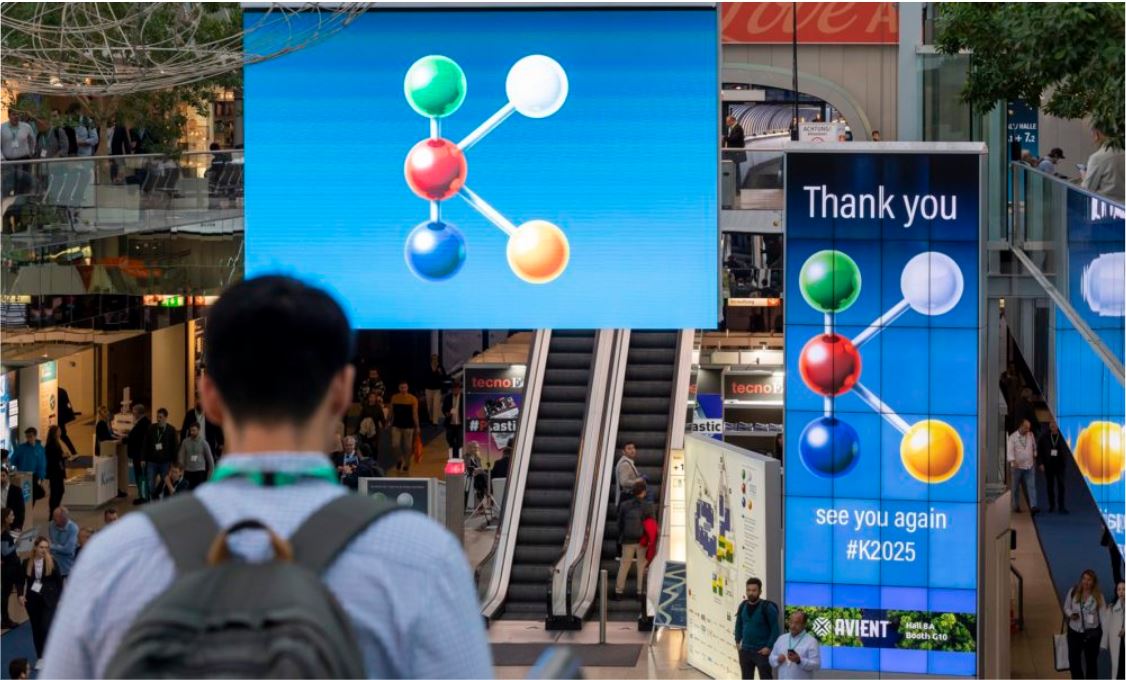

Despite economic uncertainty, the plastics sector places hope in K 2025, the world's sector trade fair, showcasing innovations and solutions. Copyright: Messe Düsseldorf.
In times of economic uncertainty, the global plastics industry places excellent hope in K 2025, the world’s leading trade fair, which has often marked a turning point in the sector.
The key theme of K 2025, The Power of Plastics – Green, Smart, Responsible, highlights the crucial role of plastics in addressing major global challenges. Plastics contribute significantly to climate protection by reducing CO2 emissions in various industries. Lightweight plastics help lower energy consumption in the automotive sector, improve insulation in construction, and extend food shelf life through better packaging solutions.
The event will focus heavily on the circular economy, showcasing efforts in recycling and sustainability. Industry leaders acknowledge that while the technology for efficient recycling exists, economic factors hinder its full potential. Stronger regulatory frameworks and consumer awareness are key drivers to pushing the industry forward.
You can also read: Key Insights for Investing in Modern Recycling Sorting Technologies
CO2 savings of up to 90% are possible through the recycling of plastics compared to the production of new plastics, demonstrating the immense potential of a well-implemented recycling system. Copyright: European Parliament Research Service
Industry experts argue that plastics, when used correctly, are among the most climate-friendly materials. Compared to alternative materials, their production emits significantly less CO2. To highlight this advantage, there is a call for increased transparency in carbon footprints on product labels.
Additionally, CO2 savings of up to 90% are possible through recycling plastics compared to producing new plastics, demonstrating the immense potential of a well-implemented recycling system.
Another key topic at K 2025 is digitalization, which is vital in improving efficiency and sustainability in plastics processing. Currently, 68% of German companies are only basic users of digital technologies. However, advancements in smart manufacturing, automated processes, and digital product tracking are expected to enhance cost efficiency and material utilization.
The industry faces a growing shortage of skilled workers, making talent development a priority. Companies invest in training programs, university collaborations, mentorships, and apprenticeship opportunities to attract young professionals. Copyright: Messe Düsseldorf.
The industry faces a growing shortage of skilled workers, making talent development a priority. Companies invest in training programs, university collaborations, mentorships, and apprenticeship opportunities to attract young professionals. Key career paths include process mechanics, tool mechanics, industrial management, and technical product design. Additionally, various awards and competitions encourage innovation and excellence among young talents.
K 2025 will serve as a crucial platform for industry leaders, innovators, and professionals to exchange ideas and showcase groundbreaking developments. With a strong focus on sustainability, digitalization, and talent development. The trade fair aims to set the direction for the future of the plastics industry, reinforcing its role in addressing global challenges while driving technological progress.
To read more: K 2025 – World’s No. 1 Trade Fair for Plastics & Rubber
On-site 3D printing of single-use consumables can help life science laboratories reduce carbon emissions.
As demand for sustainable, high-performance insulation materials increases, researchers continue to explore innovative ways to…
Polyurethane foams recycling rates remain low with less than 10% of polyurethane. Landfills receive millions…
Find ways to boost production, meet environmental regulations, and cut costs using data-driven tech solutions.
Elastomer recycling sector is undergoing significant transformation as new technologies emerge to address the limitations…
Modern vehicles are composed of increasing amounts of plastic, raising questions about the use of…